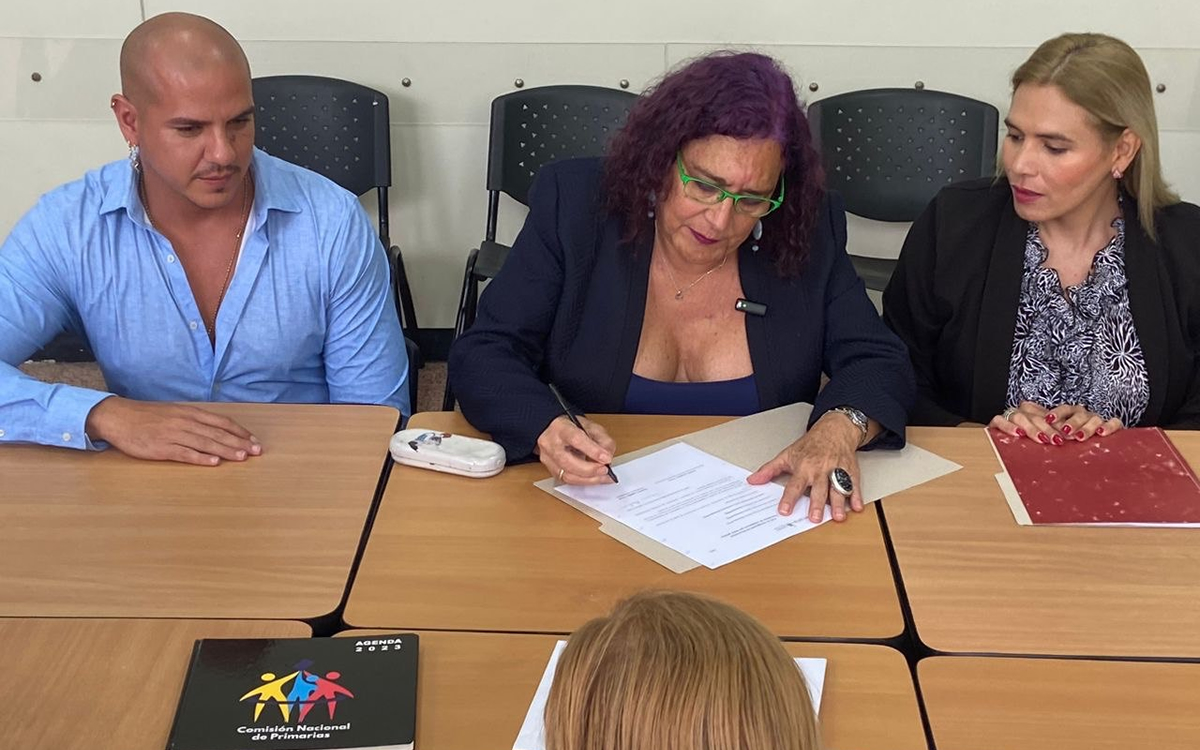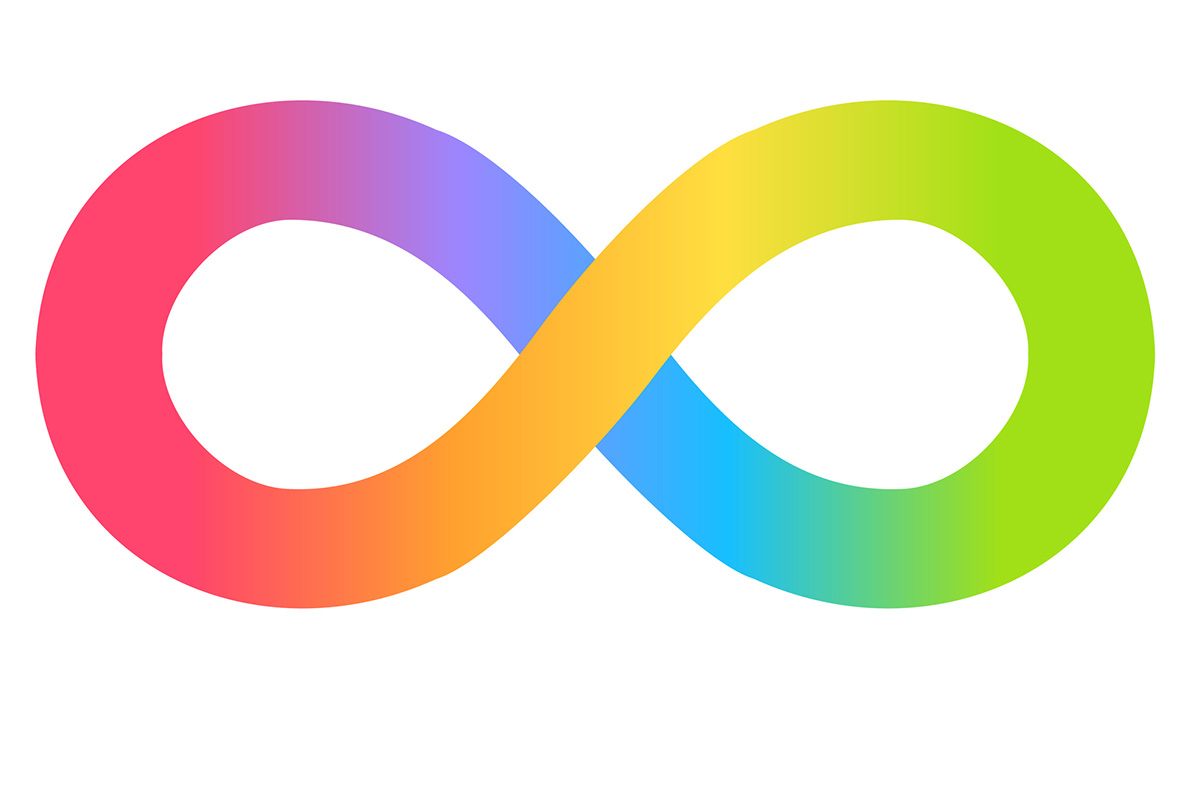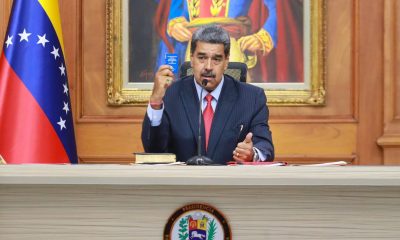Latin America
Transgender woman running to become Venezuela’s next president
Assemblywoman Tamara Adrián a candidate in party’s Oct. 22 primary

Tamara Adrián less than two weeks ago registered as a presidential candidate in the Venezuelan primary, becoming the first openly transgender person in the world to make such a move.
The 69-year-old lawyer, university professor and LGBTQ and intersex rights defender is running to represent the Unidos por la Dignidad political movement and will have to compete with at least 10 other candidates in the country’s Oct. 22 primary.
“I am the first transgender in history to officially run in a presidential election,” Adrián told the Washington Blade.
Whoever wins the primary will have to compete against President Nicolás Maduro in 2024.
Adrián wants to be the person to confront Chavismo in her country.
“We have united all the parties and political forces in Venezuela, from the left to the right, with a common goal, which is to end the regime of Nicolás Maduro,” she explained to the Blade.
For her, it is very important to oust Maduro and help Venezuela get out of the humanitarian and economic crisis that is affecting millions of people in the South American country.
Many Venezuelans do not have any food in their homes. A lack of work, low salaries and poor access to health care has caused millions of them to migrate to other countries in search of a better life.
Discrimination and violence against LGBTQ and intersex Venezuelans remains commonplace, so Adrián’s candidacy affords visibility.
“I am proud to be who I am,” she said. “I want any LGBTQ person living in this hostile country to know that you can get ahead and even become a presidential candidate.”
“I say the things that no one says,” added Adrián, who noted this attribute sets her apart from her competitors and other Venezuelan politicians.
One of her main campaign promises will be to work for the inclusion of “people with disabilities, women, senior citizens, civil servants, LGBTIQ+ people, people of African descent, indigenous people, any group that, for whatever reason, has been or may be left behind.”
Venezuela’s last presidential election took place in 2018, and Venezuelans and the international community deemed them illegal. This determination provoked the rise of interim President Juan Guaidó who the U.S. and dozens of other countries recognized as the country’s president.
Opposition leaders were imprisoned, exiled or disqualified from participating in the election and international observers were not in the country. The National Electoral Council said 46 percent of eligible voters participated in the election, which means more than half of the electorate did not vote.
“Effectively there are less and less voters in the elections and this has to do with the fact that people are losing confidence in the processes,” said Adrián. “There is a feeling that the results will be manipulated and not respected.”
She nevertheless stressed Venezuelans must keep trying and demanding transparency in their country’s political process in order for a united opposition can win elections democratically and focus on building a better future for the country.
“We know that the scenario is difficult but we are not going to lower our arms because we have to put an end to this crisis,” said Adrián. “We are going with everyone and for everyone.”
Caribbean
Double exclusion, equal dignity
LGBTQ people with disabilities in Latin America, the Caribbean face additional hurdles.

Across Latin America and the Caribbean, where LGBTQ rights advance and retreat with every political tide, there exists a reality that remains almost invisible: that of people who, in addition to belonging to the LGBTQ community, live with a physical, motor, or sensory disability. In them, two battles converge — one for recognition and another for accessibility — often fought in silence.
According to the World Bank, more than 85 million people with disabilities live in Latin America and the Caribbean. At the same time, the region is home to some of the most vibrant LGBTQ movements in the world, though deep-rooted violence and exclusion persist. Yet studies that cross both realities are almost nonexistent — and that lack of data is itself a form of violence.
Being LGBTQ in Latin America still often means facing family rejection, workplace discrimination, or religious exclusion. But when disability is added to the equation, the barriers multiply. As a Brazilian activist quoted by “CartaCapital” put it, “When I walk into an interview, they look at my wheelchair first, and then they find out I’m gay. That’s when the double filter begins.” This phenomenon, known as double prejudice, appears both outside and within the LGBTQ community itself. Disability is often invisible even at Pride marches or in diversity campaigns, where young, able-bodied imagery predominates. Ableism — the belief that only certain bodies are valid — seeps even into spaces that claim to celebrate inclusion.
The desexualization of people with disabilities is one of the most subtle and persistent forms of exclusion. The Argentine report Sex, Disability, and Pleasure, published by Distintas Latitudes, shows how society tends to deny the right to desire and love for those living with physical limitations. When that person is also LGBTQ, the denial doubles: they are stripped of their body, their desire, and a fundamental part of their human dignity. As Mexican psychologist María L. Aguilar states “the desexualization of people with disabilities is a form of symbolic violence. And when it intersects with sexual diversity, it becomes a denial of the right to pleasure and autonomy.”
One of the most visible examples of inclusion comes from the world of sports.
At the 2024 Paris Paralympic Games, at least 38 LGBTQ athletes competed, according to a report by Agencia Presentes. Yet the question remains: how many LGBTQ people with disabilities outside the sports world have access to employment, relationships, or basic services? In a continent marked by inequality, the intersection of sexual orientation, disability, poverty, and gender creates a mix of vulnerabilities that few public policies address.
Various studies show that LGBTQ people in Latin America experience higher rates of depression and anxiety than the general population. Reports on disability in the region also point to high levels of isolation and lack of support. But there are no intersectional data to measure how these challenges unfold when both realities converge. In countries like Chile, the Disability and Inclusion Observatory reports a high prevalence of mental health issues and insufficient access to specialized services. In the U.S., the Trevor Project has found that Latine LGBTQ youth face a greater risk of suicide attempts when exposed to multiple forms of discrimination. Across Latin America and the Caribbean, the absence of such data does not just reflect neglect — it perpetuates invisibility.
Neither disability laws nor LGBTQ policies address this intersection. A report by the International Disability Alliance warns that LGBTQ people with disabilities “face multiple discrimination and lack specific protections.” Even so, signs of progress are emerging: in Mexico, the Collective of LGBTQ+ People with Disabilities works to raise visibility around double exclusion; in Brazil, Vale PCD promotes labor and cultural inclusion; and in the Eastern Caribbean, Project LIVITY, led by the Eastern Caribbean Alliance for Diversity and Equality, known by the acronym ECADE, strengthens the political participation of people with disabilities and LGBTQ communities.
True inclusion is not measured by ramps or tolerance speeches. It is measured by a society’s capacity to recognize human dignity in all its expressions — without pity, without voyeurism, and without conditions. It’s not about applauding stories of resilience but about ensuring the right to a full life. As one Caribbean leader quoted by ECADE put it, “inclusion is not a gesture; it is a moral and political decision.”
This issue calls for a continental conversation. Latin America and the Caribbean will only be able to speak of real equality when the body, desire, and freedom of LGBTQ people with disabilities are respected with the same passion with which diversity is proclaimed. Naming what remains unnamed is the first step toward justice. Because what is not measured is not addressed, and what is not seen does not exist.
Latin America
Protests, demands for rights define Pride month in Latin America
More than 3 million people participated in São Paulo march

Activists across Latin America marked Pride month with massive demonstrations, cultural activities, and demands that their countries guarantee equality and protect LGBTQ people from violence.
From Santiago, Chile, to Mexico City, activists took to the streets to celebrate the rights that have been won and the many that are still pending.
Chile
The Pride march that the Movement for Homosexual Integration and Liberation (Movilh) and Fundación Iguales organized took place in downtown Santiago, the country’s capital, on June 22. Authorities and the two organizations say more than 120,000 people participated.
Under the slogan “Pride with memory and hope,” marchers demanded lawmakers approve a bill that would allow reparations for LGBTQ Chileans who Gen. Augusto Pinochet’s dictatorship targeted. There were also calls for the government to promote an LGBTQ-inclusive educational reform.
“This time we are marching on high alert,” said Movilh spokesperson Javiera Zúñiga. “For the first time in decades, we are losing achieved rights. We demand the state wake up. The reform of the Zamudio Law has been stalled for 13 years.”
Marches also took place in Valparaíso, Antofagasta, Temuco, and Concepción, highlighting the growing visibility of transgender groups and feminist organizations.
Mexico
Mexico City on June 29 was the epicenter of one of the region’s largest Pride marches.
More than 300,000 people participated in the march. Comité IncluyeT organized the 46th annual march under the slogan “Not one step back: rights are respected.”
Several organizations denounced the increase in hate crimes — Mexico’s National Observatory of Hate Crimes notes more than 80 LGBTQ people have been reported murdered in the last year. They also urged Mexican lawmakers to criminalize transfeminicides across the country.
Argentina
Although Buenos Aires’s official Pride march takes place in November, the Argentine LGBT+ Federation and other groups in the Argentine capital and in other cities across the country in June organized activities.
More than 5,000 people on June 24 marched from Plaza de Mayo to the Argentine Congress to reject the government’s dismantling of public policies. President Javier Milei’s decision to eliminate the country’s Women, Gender, and Diversity Ministry and cut sexual health programs were among the moves the protesters denounced.
“Today Pride is also resistance to the adjustment,” pointed out Comunidad Homosexual Argentina, an LGBTQ advocacy group.

Colombia
Thousands of people in Bogotá, the Colombian capital, and the cities of Medellín, Cali, and Barranquilla marched on June 29.
The marchers’ slogan was “diversity is also peace,” in a context where violence against LGBTQ people remains high. Caribe Afirmativo, a Colombian LGBTQ rights group, notes more than 45 people from the community has been reported killed in the country over the last 12 months, with most of them trans women.
Organizations also demanded lawmakers resume debate of a bill that would extend comprehensive protections to LGBTQ Colombians. The measure has been stalled in Congress since 2023.
Brazil
More than 3 million people participated in the 28th São Paulo LGBTQ+ Pride Parade that took place on the city’s Paulista Avenue on June 22.
The parade took place under the slogan “LGBT+ social policies: we want the whole thing, not half of it.” Organizers demanded expanded access to health care, employment, and education for the most vulnerable communities, especially Black trans people. They also denounced ultraconservative figures who seek to curtail LGBTQ rights.
Peru and Paraguay
More than 15,000 people took part in a Pride march in Lima, the Peruvian capital, on June 28. Participants demanded lawmakers approve a trans rights law, which has been stalled in the Peruvian Congress since 2016, and recognition of civil unions.
Members of SomosGay, a Paraguayan LGBTQ rights group, and other organizations participated in a Pride march that took place in Asunción, the country’s capital, on June 29.
The march took place without incident, despite threats and anti-LGBTQ hate speech on social media. Participants demanded an end to anti-LGBTQ discrimination and rhetoric from social and religious groups.
Central America
Upwards of 2,000 people participated in a Pride march in Tegucigalpa, the Honduran capital, on June 22. A Pride demonstration took place in San Salvador, the capital of neighboring El Salvador, on June 28.
Latin America
LGBTQ cruise ship rescues 11 migrants between Cuba and Mexico
Rescue took place in Yucatán Channel on Wednesday

A cruise ship chartered by an LGBTQ travel company on Wednesday rescued 11 Cubans from a boat that was adrift between their country and Mexico.
Vacaya in a press release said the Royal Caribbean’s Brilliance of the Seas, which had left from New Orleans, discovered the migrants’ boat in the Yucatán Channel, a strait between Mexico and Cuba that connects the Gulf of Mexico (the Trump-Vance administration now refers to the body of water as the Gulf of America) and the Caribbean Sea.
A video that Vacaya provided shows the migrants’ boat before the rescue. Other videos show the rescue taking place.
MTV’s Downtown Julie Brown, who was performing on the ship, described the rescue in a video she posted to social media.
“We are in the middle of a live rescue operation right now,” she said. “The captain of the ship, while we were hauling so fast the other way, thought he saw a boat in distress. So, we looped around … and it was indeed a boat in distress.”
“Nothing speaks more to VACAYA’s values than providing comfort in a moment of need,” said Vacaya CEO Randle Roper in the press release. “I’m so happy we were able to bring these 11 refugees onboard safely and provide medical care, dry clothes, food, and, most importantly, water.”
“It’s sad that some people have to put themselves through such trauma in hopes of finding a better life, but that’s where we are today,” added Roper. “I’m so proud of our LGBT+ guests rallying to collect clothes for these fellow humans in need.”
The ship is scheduled to return to New Orleans on Saturday.
-

 National3 days ago
National3 days agoWhat to watch for in 2026: midterms, Supreme Court, and more
-

 District of Columbia4 days ago
District of Columbia4 days agoTwo pioneering gay journalists to speak at Thursday event
-

 Colombia4 days ago
Colombia4 days agoBlade travels to Colombia after U.S. forces seize Maduro in Venezuela
-

 a&e features4 days ago
a&e features4 days agoQueer highlights of the 2026 Critics Choice Awards: Aunt Gladys, that ‘Heated Rivalry’ shoutout and more

















